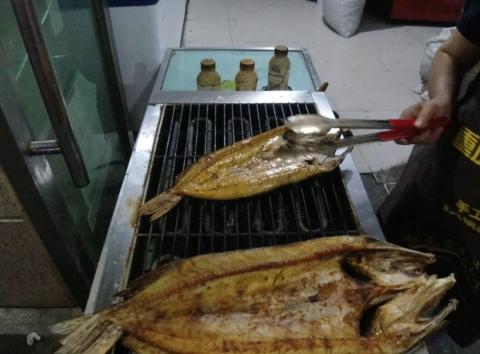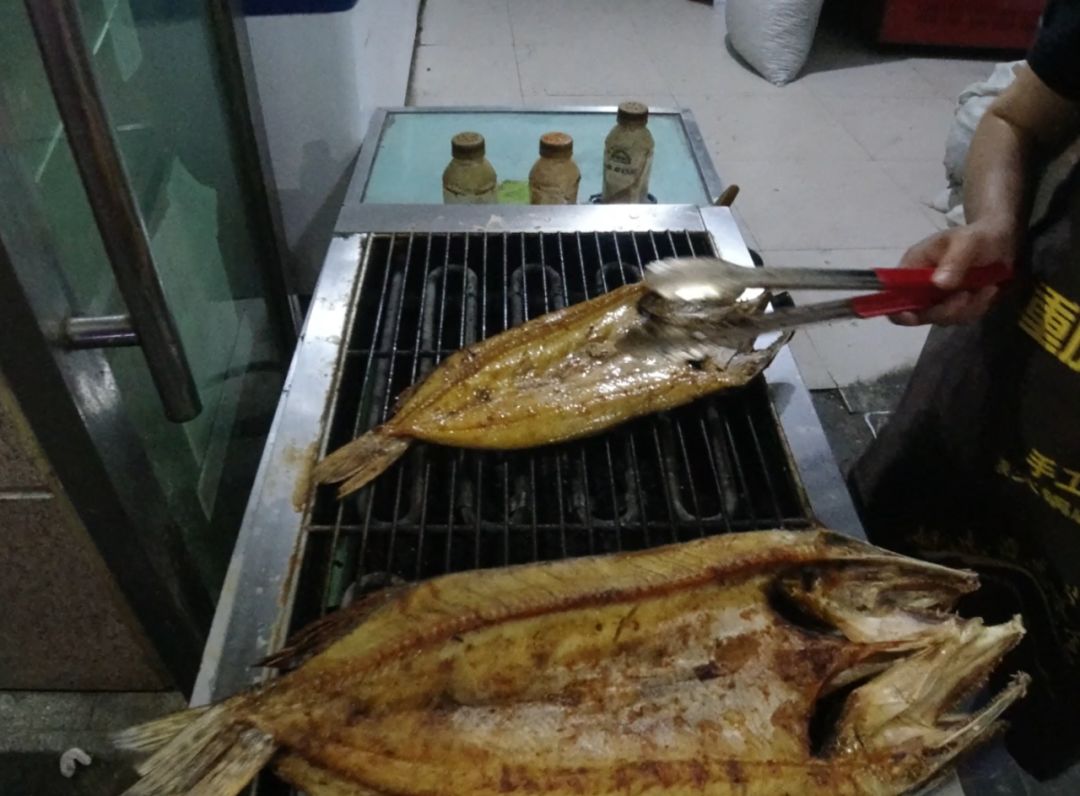
After arriving in Fuhai County on the evening of July 16, we went to the night market to look for grilled fish.
Sure enough, the name is well-deserved. The small one is 35 yuan, and the large one is 50 yuan each. They are dried first and then grilled. The meat becomes particularly firm and chewy. Coupled with the unique taste of Xinjiang barbecue, the two of us bought one and it was not enough to eat. I felt that I was the only one. Anyone can eat a big fish hahaha!

On the afternoon of the 17th, we purchased hot pot ingredients. The protagonist is the small fish Wu Dao Hei in the picture below, and we are going to have a hot pot meal next to Ulungu Lake.

The hot pot is delicious and the food is beautiful, but there are so many mosquitoes that even the screen windows of the RV cannot stop the mosquitoes.


Ulungu Lake is really beautiful. If you didn’t say this is Xinjiang, where would you think it is?



Ulungu Lake is the largest permanent freshwater lake in northern Xinjiang. It is mainly formed and maintained by seasonal water replenishment after the glaciers and snow melt in the Altai Mountains.

The place where we parked our car at night belongs to the Ulungu Lake National Wetland Park, which consists of two parts: Ulungu Lake and Jili Lake. There are many water birds that cannot be named.



There are sandy areas around the lake, which is very suitable for camping. After surviving the mosquito army just after dark, the wind will blow away the mosquitoes at night, giving you a good night's sleep.

Arriving in Burqin on the 18th, I encountered some unpleasantness at the Hedi Night Market.

There is a "Beiyuanchun BBQ" in the night market. After chatting with the owner, I learned that she was from Hutubi, so I decided to have dinner at her house.
As a result, when the price was quoted, the mutton skewers were said to be 4 yuan, and there were big and small-tailed Han sheep. We chose the big-tailed Han lamb, but when we checked out, they were told that the big-tailed Han sheep would cost 6 yuan per skewer. This was the first choice;
Second, the grilled corn was rancid, but the boss refused to admit it and insisted on eating it himself to prove that the ingredients were fresh;
Third, the cold skin is very hard and the taste is not very good. The small portion actually costs 12 yuan;
Fourth, when checking out, two skewers of roasted lamb liver are 2×4 yuan = 24 yuan. What is the calculation for this?
How could we let her succeed? We argued hard and finally paid 64 yuan.
Although we had no losses, we still couldn't stand what she did.
I would like to remind everyone that when eating out, you must ask about the price in advance, do the calculation yourself when checking out, and try to avoid eating in scenic spots. Also, don’t simply think like us that fellow villagers will not cheat people.

One meal made us lose our good impression of Burqin. On the 19th, that is, yesterday morning, we left Burqin and drove three hours to the northwestmost place in our country - the first company of the 185th Regiment on the northwest border.

The first company on the northwest border belongs to the 185th Regiment of the 10th Agricultural Division of the Corps. The first company close to the border between China and Kazakhstan is the company closest to the border in the country, across the river from Kazakhstan.


In 1962, the first batch of pioneers came to this barren land on the banks of the Arakbek River and started the arduous business of building the frontier.
For half a century, three generations of military settlers have defended the country loyally, squandering their youth and blood, turning the desert into an oasis, making this land of 55.5 square kilometers in In 1997when China and Kazakhstan confirmed their rights and demarcated the border, they were permanently included in the territory of the People's Republic of China!

While it's picturesque in the summer and early fall, be aware that it's "unfit for human habitation" for much of the year.
Not only is it closed by seven to eighty centimeters of heavy snow for half the year every year, it is also one of the four major mosquito areas in the world, along with the Amazon River Basin in South America.


There is a small flying insect here, the size of a small southern black insect, commonly known as "little bite". The first generation of military reclamation called it "black widow", and experts say its scientific name is "midge".

Diwozi was the first "home" of the first batch of military settlers here. The one in the picture is a replica. A local employee who lived in Diwozi when he was a child told us that the Diwozi at that time was made of reeds and mud. The roof was very simple with no cement or bricks, but it was warm in the winter and cool in the summer. After I moved into a new house, I would still play in the nest.


While waiting for the exhibition hall to open, we met an aunt who has lived here for 30 years. Perhaps because her granddaughter was about the same age as Brother Chen and could not be seen often, Auntie gave all the delicious food to Brother Chen.


"Goodbye grandma!"

The exhibition hall is like a silent biography, recording the great achievements of several generations of Corps members.


The officers and soldiers of the outpost have left one after another, but the employees of the first company have stayed there for decades and are known as the "eternal soldiers of the iron-clad camp."


Only when you get closer to the border can you deeply feel what a country is and what a nation is. The patriotic feelings hidden deep in the heart are once again awakened.


We will stay in Group 185 tonight and go to see Baisha Lake tomorrow. See you tomorrow, friends!
